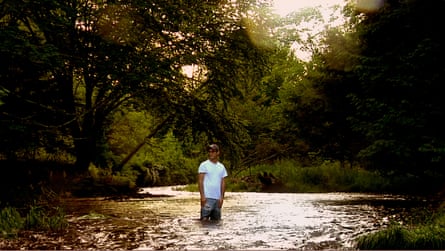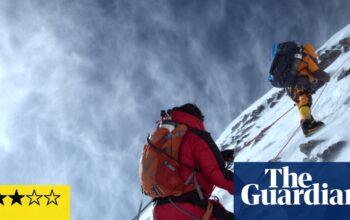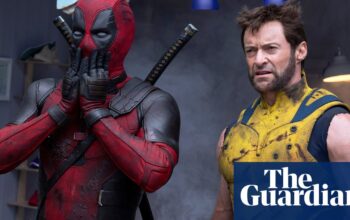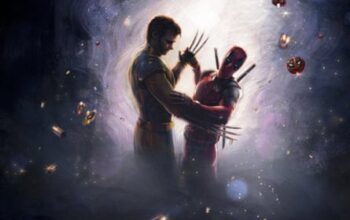After his documentary Gasland was nominated for an Oscar, Josh Fox experienced intense pressure from the fossil fuel industry.
For five to six years, I was considered the top enemy, according to him. They tracked my movements throughout the country. There were threats of setting fires and constant warnings of death. There were extensive efforts to discredit the film, specifically aimed at me.
In 2008, Fox was sent a letter to his father’s property in the upper Delaware River Basin in the United States. The letter was from a natural gas mining company that was willing to pay him $100,000 to lease 19.5 acres of land.
Instead of accepting the funds, Fox embarked on a journey across the United States with a camera to witness the impact of shale gas drilling on other communities. What he discovered was a battle for survival. Locals showed him water that was carbonated and flammable, a result of the drilling. In his documentary Gasland released in 2010, Fox exposed the harmful effects of hydraulic fracturing, including air pollution, groundwater contamination, and harm to animals and humans.
The film received high praise and sparked a global movement against fracking. Its follow-up, Gasland Part II in 2013, featured the Bentley blockade, which effectively halted gas drilling in the northern rivers region of Australia.
The reason for Fox’s presence in Australia is not related to his tireless efforts in climate activism (although that is always on his mind). He is currently in the country for the debut of his latest documentary, The Edge of Nature, which was featured at the Byron Bay international film festival. The fast-talking New Yorker can be seen wearing a straw hat and keeping his beloved banjo on his hotel bed as he passionately shares information with urgency.
During the 2020 pandemic, Fox returned to his childhood home in a remote Pennsylvanian forest where he sought refuge in a small shack. With only a banjo and basic supplies including a battery and solar panel for electricity, he lived in isolation for nine months while recovering from severe neurological symptoms caused by long Covid. On a particularly challenging night, he expresses his frustration with his brain’s inability to function properly while recording himself on camera.
The movie opens with a flurry of visuals and a jolting speech regarding the condition of the world in 2019, prior to the “anthropause” caused by lockdowns: “2.09 billion birds inexplicably disappeared, one-third of all species at risk, 17% of global wildlife gone, emissions skyrocketing.” Despite its shocking nature, the concern for the environmental crisis would soon be magnified by the emergence of a lethal and incapacitating virus. “We were unaware of how fortunate we were,” he remarks. The contrast with his voluntary isolation is stark.
In the woods, he resided in a state of “filthy feverish delusions”, as described in the movie: “The virus wreaked havoc on my mind, jumbling and connecting synapses that didn’t make sense.” Fox battled with difficulty breathing and constant blinking. Medical professionals were unable to diagnose his condition.
Residing near a hardworking group of beavers (“I have a fondness for those beavers”), along with other untamed creatures in the natural world, “removed from the chaos and aggression that exacerbated my mental fog”, he embarked on a journey to recover “to a sufficient extent to continue persevering”.

While Gasland made Fox an accidental ecowarrior as he took on the political power of big oil companies, The Edge of Nature captures a totally different fight. “The frontlines were inside my head, inside my body, both psychological and physical. They were spiritual, they were emotional.”
The fox did not experience loneliness in the forest as he was always surrounded by nature. He found solace in conversing with the stars and frogs, observing their attempts to find a mate and the songs of different species trying to procreate. This led him to a deeper understanding of the seasons, realizing that there are more than just four, but at least 12 in his mind.
One evening, he is startled by the sounds of gunfire and becomes afraid. He explains to the camera that these shots serve as a warning to all those within earshot, including bears, deer, and other hunted animals. The sound of the guns makes him reflect on human aggression and the lasting impact of past generations’ traumas, particularly with regards to his own family history. He shares that his grandmother was the sole survivor out of nine siblings during the Holocaust, while his grandfather was left with no remaining family.
He reflects on the brutality of the past, acknowledging that America’s foundation is rooted in genocide and slavery. He also contemplates the impending death caused by climate change, stating that it will have catastrophic effects on all living beings on the planet, leading to possible extinction.
He realized during his time in the forest that we cannot fix ourselves while neglecting the planet. The planet must be taken into account in all of our choices. We must recognize that nature heals us just as we heal it – it is a mutually beneficial relationship. What benefits the garden also benefits us.
Despite experiencing occasional symptoms, Fox reports feeling significantly healthier now. The cause of his improvement remains unknown. He dealt with these symptoms for a period of 16 months. However, he credits spending time outdoors for greatly aiding in his recovery from PTSD and other long Covid symptoms. His passion for environmental activism is what ultimately heals him. Through his film, he aims to raise awareness, resources, and research for the widespread issue of long Covid.
While residing in the forest, he gained a deeper understanding of humanity’s role as guardians of the Earth. “The forest relies on us. We possess the knowledge of how to promote biodiversity and maintain healthy ecosystems.”
He gazes at the vibrant blue sky above Byron with a sense of awe. “In the United States, we rarely see such clear skies, except during the pandemic,” he remarks. “Covid-19 is the first time in human history that we have significantly lowered emissions to meet the climate change targets set by the Paris Agreement. There are important lessons to be learned from this experience. The Earth was trying to communicate with us and we must listen. Mother Nature essentially put humanity in timeout and urged us to reflect on our actions.”

The television documentary Gasland, which first aired on HBO, would not be approved for broadcast in the United States at this time, according to Fox. He describes the media industry as highly oppressive and restrictive, but despite facing formidable adversaries, he remains resolute and determined, though possibly affected by his experiences. It seems that he enjoys the challenge of fighting against seemingly insurmountable odds. Fox firmly believes that he is on the right side of the battle and has the strength of righteousness behind him. He explains that through organizing and working together, people can have a strong collective influence and should have confidence in their ability to do so.
The fox does not assert that he holds all the solutions. He is driven by inquiries, with the primary one being: “Is this achievable?”
“I am aware that movements are the source of power,” he states. “Currently, we are facing difficulties and experiencing pain. This film is a tribute to these movements, conveying the message that we must heal ourselves and move forward. We have the ability to connect with the Earth, which transforms our deaths into new life. We can either acknowledge this reality or choose to ignore it by fueling Elon Musk’s rockets, driving SUVs, and spending excessive time on screens.”
Source: theguardian.com


